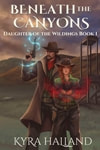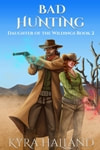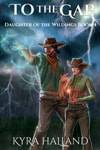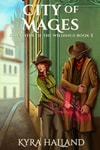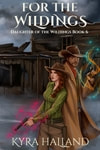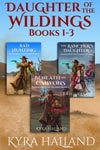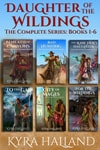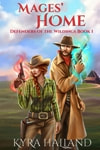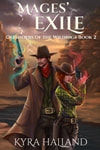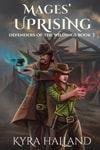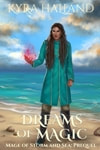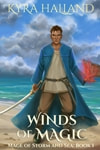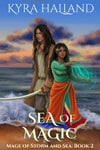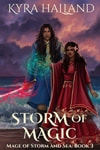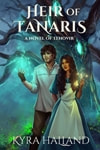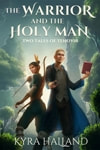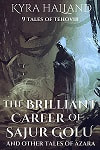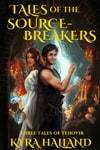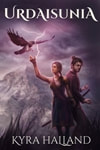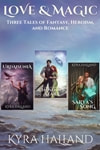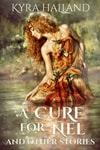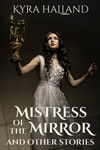|
Last time on the Breakfast Challenge, we looked at Professor Roric Rossony from The Lost Book of Anggird. Today we'll see what breakfast is like for the characters in Urdaisunia.
In short, not nearly as luxurious. At one time, the land of Urdaisunia was an agricultural oasis, the Urdaisunians having developed various advanced agricultural techniques including an extensive irrigation system. But now drought and war have put an end to that, and food is in perilously short supply. The staple foods in the villages along the riverbanks, including Rashali's home village Moon Bend, are lentils and barley (mostly from stores from previous years' crops, since the harvests have been getting worse every year), root vegetables and greens that are native to the desert (because of the water shortage, vegetable gardens can no longer be grown), goat's milk, and chicken eggs. The river villagers' main source of animal protein was always fish, but with the drying up of the rivers, that major component of their diet has disappeared. Every once in a while, the village will butcher a spare goat and eat a small portion of the meat spit-roasted or stewed, but most of it is cured and dried. Goat jerky, basically. The same with chickens: they're more valuable for their eggs than for their meat, but every once in a while a hen too old to lay or a spare rooster will be killed and eaten. With food in such short supply, the river villagers generally only eat one meal a day. They postpone that one meal as late in the day as they can, so they won't be too hungry to sleep at bedtime. Food supplies are commonly-shared, so food preparation and eating are generally communal activities. In spite of the shortages, the villagers are generous with those who have even less, such as travelers who have eaten their own provisions. They believe it's an offense to the gods to withold even what little they have been given by the favor of the gods. When Rashali finds herself in unexpectedly comfortable circumstances in the capital city Zir, she is served a meal consisting of grilled fish (the two rivers have been dammed up at Zir, so fish is still available), soft cheese, cold cooked barley dressed with olive oil and herbs, fresh greens, figs, and almond cakes. This is more food than she sees in a week, and she feels guilty at the abundance, thinking of how hungry the people back home in Moon Bend are, but she eats as much of it as she can so as not to offend the gods and the person who provided the meal by wasting it. This is a supper; a breakfast in this situation would consist of cooked barley and/or lentils topped with goat-milk yogurt, barley bread, soft cheese, and figs or grapes. Two large meals a day are served here, one in late morning and the other late in the afternoon. Meals are eaten privately or in a formal family setting. In another part of the book, Rashali is in an exceptionally well-run rebel camp with good supply lines, including water supplies. Three meals a day are served here, because the days start early and end late and include a lot of military training and other hard work. A typical meal is lentil stew topped with goat-milk yogurt, and the camp also stores hard-baked cakes of barley and lentils. In Kubiz, the great harbor city, fish is a lot more abundant, of course. Fish stew or grilled fish are eaten at nearly every meal, and Kubiz still has enough food supplies that anyone who can afford it can eat three meals a day. Kubiz is also a very cosmopolitan city, so the food has a lot of international influences, including stir-fry and kebabs. Candy is popular, with makers of almond-paste and honey sweets being common. I used food in Urdaisunia as a close reflection of the different circumstances and settings the characters find themselves in. In some ways, Urdaisunia is a story of survival, both of individuals and of nations, and food is essential to survival. It was also interesting to do some research into what kinds of food would have been available to the ancient Sumerians. In an earlier version of the book I had the Urdaisunians eating lots of rice, until it occurred to me (duh) that rice cultivation takes a lot of water. Way more water than was ever available. So, goodbye rice, hello barley. I like barley, as it happens, and I also like lentils. I don't think I'd like them as much if that was most of what I had to eat, though. Camp NaNo report: 4/15 1801 words 4/16 1680 words Total: 16,829/30,000 Finally, here's a shout-out to Sharon Stevenson, this week's featured writer at the Paranormal, Fantasy, Dystopia and Romance Writers and Reviewers group on Goodreads!
0 Comments
Your comment will be posted after it is approved.
Leave a Reply. |
AuthorI am Kyra Halland, author of tales of fantasy, heroism, and romance. Sign up for my email list
My Books
More Books
Click on the covers for more information
Categories
All
Archives
April 2024
Kyra Halland: Welcome to My Worlds is a participant in the Amazon Services LLC Associates Program, an affiliate advertising program designed to provide a means for sites to earn advertising fees by advertising and linking to amazon.com.
Other links on this site may also lead to products for which the owner may receive compensation. This website uses marketing and tracking technologies. Opting out of this will opt you out of all cookies, except for those needed to run the website. Note that some products may not work as well without tracking cookies. Opt Out of Cookies |
 RSS Feed
RSS Feed
